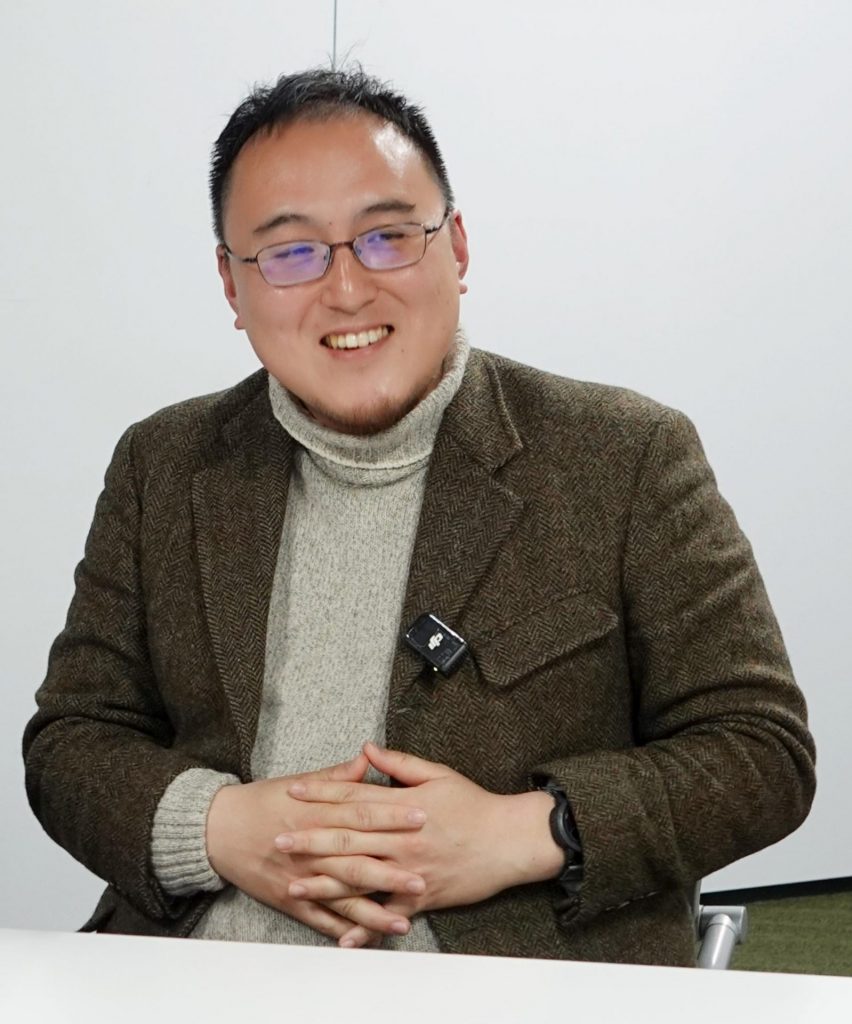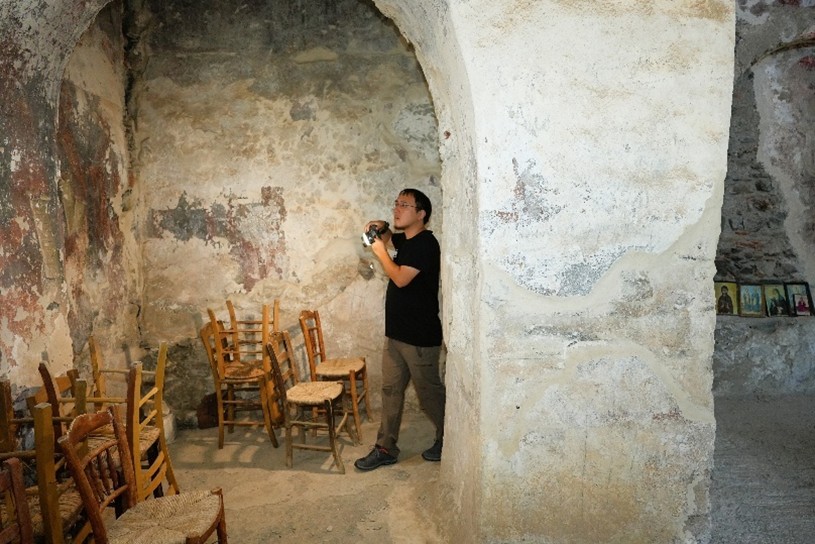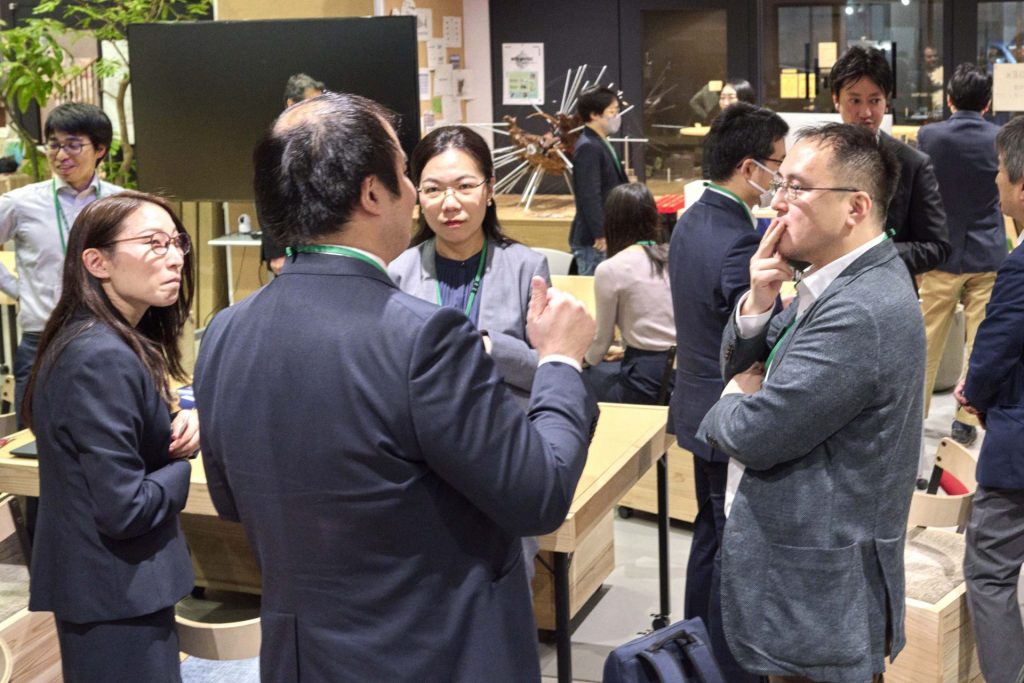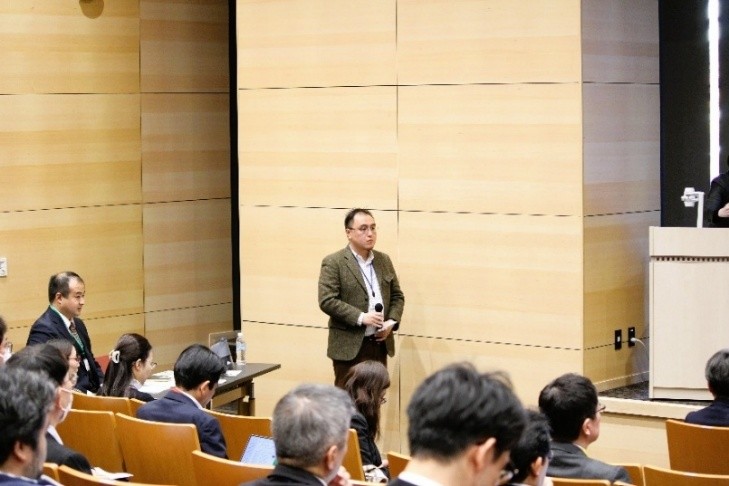
Dr. Ryo Higuchi (YLC Designated Assistant Professor, Institute for Advanced Research/Graduate School of Humanities, Nagoya University)
Dr. Higuchi started out as an architecture student, until he became captivated by the beauty of cathedrals in the Middle East and made a drastic change in his field of study, turning his attention to examining and documenting medieval architecture. He continues to pursue research in this area. After four years as a T-GEx Fellow, he was hired as an Associate Professor at the Nippon Institute of Technology’s Faculty of Architecture, where he took up his new position in April 2025.
── Congratulations on your new job! You were selected as a T-GEx Fellow in 2021, which was the program’s first year.
Thank you very much. Yes, it was the first year of the program. At the time, I had just joined Nagoya University's YLC program, and I didn't know much about T-GEx at all. I basically applied to T-GEx just because I heard that the program provides research funding.
── What was it like actually being in the program?
The past four years have gone by so fast. I joined T-GEx right in the middle of the COVID-19 pandemic, so I couldn't even come to campus. After that, I spent two years doing research in Austria as a JSPS Overseas Research Fellow. I was finally able to participate in face-to-face events after returning to Japan in the spring of 2024, and it was only then that I truly felt like I was part of T-GEx. So it really did go by in a flash.

In 2022, the year after he became a T-GEx Fellow, Dr. Higuchi conducted a survey. He is advancing research to build three-dimensional archives based on the photographs taken during that investigation.
── You attended the April 2024 Kick-Off Meeting. That was your first opportunity to introduce yourself, right?
Yes, that was the first time I was able to meet the other Fellows and Associates face-to-face. A Company Associate came over to talk to me at the kick-off meeting, and I shared some ideas I’d been thinking about. That actually ended up giving me the push I needed to take the first step and start working on a collaborative research project.

Dr. Higuchi proactively networks at his first in-person event, a kick-off meeting, immediately after his return to Japan.
── You applied for the Seeds Joint Research Fund for that project, right?
Yes, I applied. At the time, I wasn’t sure whether I would be able to bring my original plans to fruition, but the funding gave me the opportunity to explore and test some of my ideas, for which I’m truly grateful. I also received a research grant from the Tailor-Made Research Fund, which I was likewise very grateful for. You can be in the T-GEx program for up to five years, but personally, I would recommend securing these research funds at an early stage. Then you can get on with your research, turn those ideas into something actionable, and then use and develop those ideas in subsequent research.
── It sounds like you were able to make good use of those research funds. At T-GEx, there’s a task force led by Fellows and Associates that plans and manages events. You served as the lead organizer of the task force for the 2024 Research Results Exhibition, with support from URA and administrative staff. What was that experience like?
I was very grateful for the support. If we’d done everything by ourselves, we wouldn’t have even known things like when to schedule an invited talk, or when to reach out to a guest... I realized that these are things I never would have known about from just doing online events. I got lot more out of the experience by being a proactive participant.
── Was it tough being the lead organizer?
I heard that in the first year, they had a really hard time with all the preparations and everything. But this year, I feel like we were able to operate at a higher level by building on those experiences. One of the things that helped us was that we used a gantt chart to clearly show what needed to be done by when. It served as a great reminder about the importance of schedule management.

Dr. Higuchi served as the lead organizer and moderated the December 2024 Exhibition. Thanks to careful preparation, the event went very smoothly.
── It seems like this year, you’ve been taking advantage of everything the T-GEx program has to offer.
I think that, in my final year, I came to understand what the T-GEx program is all about. For example, if you learn something like organizational skills in your first year, you can then apply that knowledge going forward. So in that sense, I think it’s smart to be an active participant in the program from Day 1 and get experience in event management. That way, you learn through hands-on experience, and then put that knowledge into practice. It really feels like you’re getting a lot of value out of the program, you know?
── We’re continuously making adjustments to the program to reduce the burden it places on its participants. How did it feel for you?
I think it depends on the person, but I didn't feel any kind of pressure from participating in the program or working as the lead organizer. If anything, the administrative procedures I had to deal with to go abroad for research were more stressful. I conduct most of my research overseas, and that means I need to deal with receipts and invoices for every little thing—and in my case, I handle it all by myself. I really wish there were some way to make it easier.
── At T-GEx, we’re eager to do what we can to improve the research environment for our fellows. Do you think you’ll be able to make use of your experience at T-GEx when you start your new job in April?
Yes, I believe that all of my experiences at T-GEx will be useful to me. What left the biggest impression on me was the PI training seminar. It taught me a lot about how to think strategically when it comes to managing a research lab and building a research team. Research methodology is certainly important, but I feel that what Nagoya University taught me that I couldn’t have learned anywhere else is organizational theory. Being able to interact closely with people in other fields was also a great experience. So really, being able to participate in T-GEx was very big for me.
── Is there anything you’d like to say to all the T-GEx fellow associates?
There will be times that every day is so busy that you hesitate to take on the extra work of organizing or managing something, but I think it's better to get that kind of experience as early as possible. I believe that by actively getting involved in T-GEx’s programs at an early stage, you have a lot more to gain from the experience. Plus, T-GEx offers generous research funds and provides a relaxed research environment, so I personally think it’s a good opportunity to network and really expand your research.
── By actively pursuing and learning from a wide variety of new experiences, you have continued to grow and advance in your career, Dr. Higuchi. We’ve learned a lot from being able to glimpse the passion and positivity behind your gentle smile. We look forward to seeing how your research continues to develop, and we sincerely wish you all the best in your future endeavors.
Interviewed by Mayuko Kumasaka (URA, Academic Research & Industry-Academia-Government Collaboration)
Written by Tomoe Tsuboi (URA, Academic Research & Industry-Academia-Government Collaboration)
Related Links
• Ryo Higuchi https://researchmap.jp/ryo_higuhi?lang=en
• The 103rd Meidai Cafe "中世建築を研究する―ビザンティン建築を調べ、記録する"
https://note.com/nagoya_ura/n/n2ca1a43f8c5b

